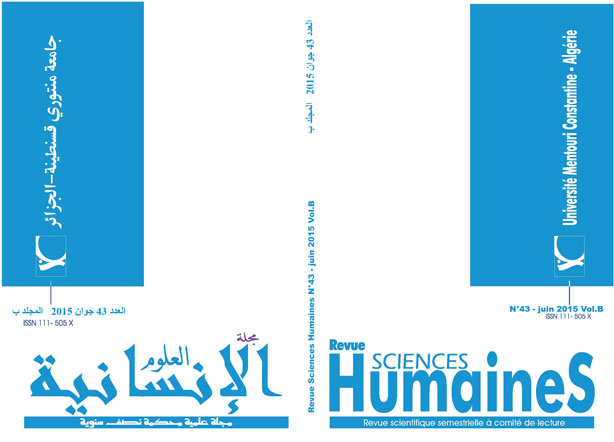The Unsaid in Chomsky’s Theory of Language and Pragmatics
Mots-clés :
Chomsky’s TheoryRésumé
There is a common belief among EFL learners and their teachers alike that the unsaid information is a specificity of pragmatics and pragmatics only. In the domain of linguistics it is made clear that semantics and pragmatics are the two disciplines which look at the knowledge used to convey and to extract meaning when speaking or hearing someone speak. It is also clear-cut that, generally speaking, semantics is concerned with meaning that comes from linguistic knowledge, while pragmatics is concerned with meaning that takes into consideration knowledge about the social world. That is, the pragmatic meaning cannot be predicted by linguistic knowledge alone.
The aim of this paper, however, is to show that the standpoint that the unsaid information is a property of pragmatics only is debatable. The unsaid information, yet understood, is introduced in Chomsky’s theory of language, namely in his transformational grammar. The only thing is, in pragmatics, the unsaid is understood by implication, whereas in Chomsky’s grammar, the unsaid is understood by intuitions which are part of the speaker’s language.
Téléchargements
Références
Bloomfield, L. (1933). Language. New York: H. Holt & Co.
Chomsky, N. (1957). Syntactic structures. 's-Gravenhage: Mouton.
Chomsky, N. (1965). Aspects of the theory of syntax. Cambridge: Massachusetts Institute of Technology Press.
Chomsky, N. (1973). Conditions on transformations. In S. R. Anderson & P. Kiparsky (Eds.), A Festschrift for Morris Halle (pp. 232-286). New York: Holt, Rinehart & Winston.
Harris, Z. S. (1951). Methods in structural linguistics. Chicago: University of Chicago Press.
Hogan, G. B. (2013). Building better paragraphs. Boston, MA: Wadsworth, Cengage Learning
Lepschy, G. C. (1982). A survey of structural linguistics. London: Deutsch.
Levinson, S. C. (1983). Pragmatics. Cambridge: Cambridge University Press.
Morley, D. (2007). The Cambridge introduction to creative writing. Cambridge: Cambridge University Press.
Peccei, J. S. (1999). Pragmatics. London: Routledge.
Saussure, F. de. (1916). Cours de linguistique générale. Lausanne: Payot.
Saussure, F. de. (1960). Course in general linguistics (W. Baskin, Trans.). London: Owen.
Yule, G. (1996). Pragmatics. Oxford: Oxford University Press.
















